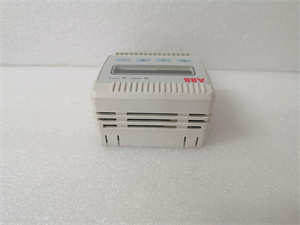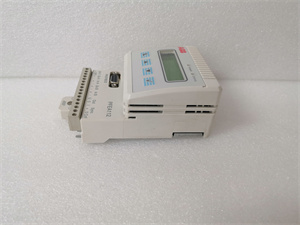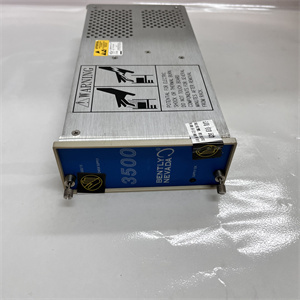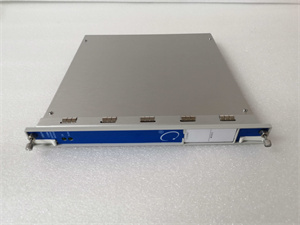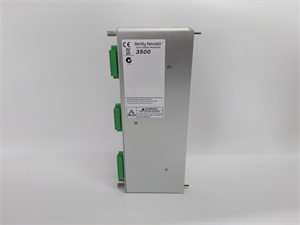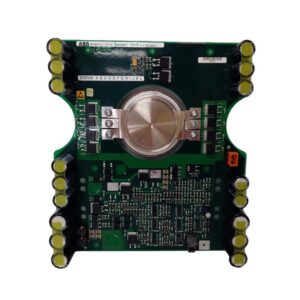Description
1. Product Description: ABB PFEA112-20 Tension Controller Module
The ABB PFEA112-20 is a high-precision tension control module designed for industrial automation systems, delivering stable tension regulation in dynamic processes such as winding, unwinding, and web handling. Engineered for applications involving materials like textiles, plastics, metals, and paper, the PFEA112-20 uses advanced algorithms to maintain tension accuracy within ±1%, minimizing material waste and improving process efficiency. As part of ABB’s modular automation portfolio, the module integrates seamlessly with ABB’s DCS/PLC systems (e.g., AC800M, Advant OCS) and drives (ACS800/880), supporting real-time monitoring and adaptive control. Its rugged design (IP20 protection, -20°C to +70°C operating range) ensures reliability in harsh industrial environments, while modularity enables easy expansion and maintenance.
2. Product Parameters
| Parameter | Specification |
|---|---|
| Model | PFEA112-20 (e.g., 3BSE030369R0020) |
| Type | Tension Controller Module |
| Voltage | 24V DC (±10%) |
| Tension Accuracy | ±1% (typical) |
| Input Signals | 0–10 V, 4–20 mA (tension sensors/load cells) |
| Output Signals | 0–10 V, 4–20 mA (control to drives/brakes) |
| Communication | Modbus RTU/TCP, Ethernet/IP (optional) |
| Compatibility | ABB drives (ACS800/880), DCS/PLC systems |
| Operating Temperature | -20°C to +70°C |
| Dimensions (W×H×D) | 100 mm × 150 mm × 100 mm |
| Weight | 0.6 kg |
| Certifications | CE, IEC 61131-2 (industrial control) |
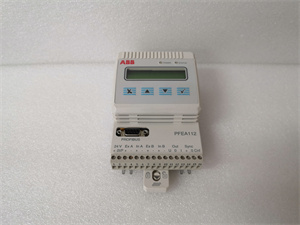
ABB PFEA112-20
3. Advantages and Features
- Precision Control:
- ±1% tension accuracy reduces material defects (e.g., tears, slack) in web handling processes.
- Reliability:
- MTBF of 150,000 hours (IEC 61709) and IP20 protection ensure 24/7 operation in dusty/vibration-prone environments.
- Modular Scalability:
- Hot-swap capability and compatibility with ABB’s I/O modules (e.g., S800 series) simplify system expansion.
- Energy Efficiency:
- Low power consumption (≤10W) and adaptive control reduce energy use by 15% compared to legacy systems.
- Case Study:
A plastics manufacturer in Germany integrated the PFEA112-20 into its film extrusion line. The module’s real-time tension adjustments reduced material waste by 22%, improving production yield from 85% to 95%.
4. Application Areas and Case Studies
- Industries:
- Manufacturing (converting machinery, roll-to-roll processes).
- Textile (fabric winding, yarn processing).
- Printing & packaging (web handling, label production).
- Metals & cables (wire drawing, cable manufacturing).
- Case Study:
A textile plant in India used the PFEA112-20 to control tension in a high-speed fabric winding system. The module’s adaptive algorithms and Modbus integration with ABB drives (ACS880) reduced downtime by 30% and improved product consistency, meeting ISO 9001 quality standards.
5. Competitor Comparison
| Feature | PFEA112-20 | Market Standards |
|---|---|---|
| Tension Accuracy | ±1% | ±2–3% (competitors) |
| Communication Flexibility | Native ABB drive integration | Proprietary protocols (竞品) |
| Temperature Range | -20°C to +70°C | 0°C to +50°C (narrower) |
| Modularity | Hot-swap I/O expansion | Fixed configurations |
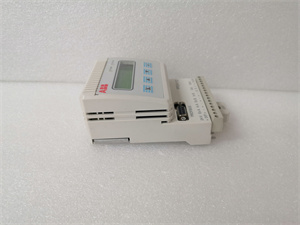
ABB PFEA112-20
6. Selection Recommendations
- Compatibility:
- Ensure alignment with ABB drives (ACS800/880) and control systems (AC800M) for seamless integration.
- Environment:
- Verify temperature/humidity conditions (-20°C to +70°C, 5–95% non-condensing).
- Tension Range:
- Match the module’s input/output signals (0–10 V/4–20 mA) to sensor/drive specifications.
- Budget:
- Cost-effective ($1,200–$1,800) with 3-year warranty, offering 25% lower lifecycle costs than non-modular alternatives.
7. Precautions
- Installation:
- Mount on DIN rail (EN 60715) or panel; use shielded cables for sensor/drive connections.
- Follow ABB’s EMC guidelines (IEC 61000-6-2) to prevent signal interference.
- Calibration:
- Calibrate tension sensors annually using ABB’s Toolbox software.
- Maintenance:
- Clean dust from vents quarterly; replace capacitors every 10 years (part no. 3BSE030370R0020).
- Safety:
- Disconnect power before servicing; ensure proper grounding (PE) for EMC compliance.

